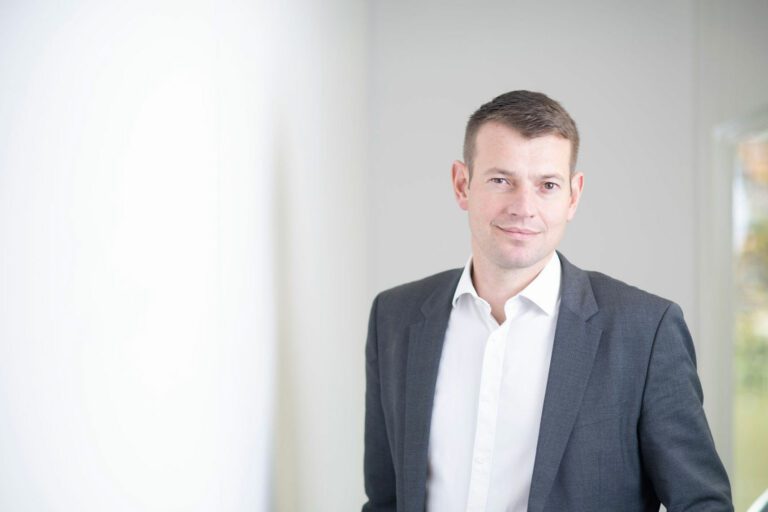The High Court’s judgment in the case of Maile & ors V Maile & ors [2025] EWHC 2494 (Ch) was handed down today.
Michelmores acted for the Second Defendant, Sheila Kempthorne, who was successful in defending four claims brought by her nephews against her Mother’s Estate, and in advancing a counterclaim for possession of the Farm, and damages for unlawful occupation against the Claimants, First Defendant, and Fifth Defendant.
We look at the key issues and the relevant points to consider arising from the Judgment.
The background
West Hook Farm, Okehampton, Devon (the Farm) has been in the Stevens’ family since 1929 and more recently was owned and operated by Mary Stevens. The Farm consists of a farmhouse and 170 acres of land and outbuildings.
Mary had two daughters, Ruth and Sheila. Ruth was married to Peter Maile, and Sheila to James Kempthorne. Ruth and Peter had two sons, Steven and John Maile, the Claimants in this case.
Mary lived at the Farm with Ruth, Steven and John, together with Ruth’s husband and Steven and John’s father, Peter Maile. The Maile family continued to occupy the Farmhouse and farm the Farm after Mary’s death.
Mary made a Will in 2006 which left her live and deadstock to Steven and John, £10,000 each to her other two grandchildren and the remainder of her estate (the residue), including the Farm, to Ruth and Sheila equally.
In 2011, Mary made a Codicil which amended the 2006 Will and instead of leaving the Farm to Ruth and Sheila, left the Farm to Steven and John. The rest of her Estate remained the same.
Mary entered into partnership with Steven and John in 2015, for inheritance tax reasons. The Partnership Agreement contained an option for Steven and John to have the right to purchase Mary’s share in the Partnership (and Farm) on her death. The Partnership Agreement contained a provision requiring vacant possession to be given for the Farm 12 months after Mary’s death.
In 2016, Mary made a second Codicil which cancelled the 2011 Codicil i.e. Mary’s Estate reverted back to the terms of her 2006 Will.
Finally, in 2017, Mary made a third and final codicil which left Sheila an additional area of land called Hook Meadow.
Mary died in March 2020 nominating Ruth and Sheila as her Executors. Sheila accepted the nomination and was appointed Executor, Ruth declined.
The claim
Shortly after Sheila extracted the grant of probate for Mary’s Estate, she received a letter of claim from Steven and John’s solicitors which claimed that they had been promised the Farm throughout their lifetime by Mary, and they had relied on those promises to their detriment and were entitled to ownership of the Farm by way of proprietary estoppel.
Steven and John issued their claim in the Business and Property Courts in Bristol.
Their claim consisted of the following, in the alternative to one another:
- Ownership of the Farm by way of proprietary estoppel.
- An order that Mary lacked the testamentary capacity to make the 2016 and 2017 Codicils.
- That the 2016 and 2017 Codicils be set aside by way of undue influence against Mary by Sheila and Mary’s solicitor.
- That Mary lacked the knowledge of what she was signing when executing the 2016 and 2017 Codicils and that she did not approve of the contents.
In her capacity as Executor, Sheila made a counterclaim against Steven and John, Ruth and Peter for possession of the Farmhouse and Farm, and for mesne profits relating to the unlawful occupation of the Farm since March 2021, being 12 months after the date of Mary’s death.
The Trial was heard over 10 days before the Honourable Mr Justice Michael Green at the Business and Property Courts in Bristol. Over the course of the Trial, the Judge heard from witnesses on both sides and had the benefit of four expert issues involving valuation, forensic accounting, forgery and testamentary capacity.
Proprietary estoppel
The doctrine of proprietary estoppel is an equitable remedy, meaning it falls outside the law of contract and looks to provide a remedy where an unconscionable act has been performed, such as the reneging of a promise, which has been relied on to the detriment of the person relying on it.
Assurances and promises
Steven and John’s case was that Mary made clear and unequivocal repeated representations that they would inherit the Farm after her death. They alleged that she made those assurances to them when they were very young. They asserted that Mary constantly said words to the effect of “one day this will all be yours”; “who else would it go to”; “you can do it your own when I’m gone”‘ “this is your farm here and I am leaving it to you”.
The Judge did not accept that these representations bound Mary’s estate. In his judgment, he said that even if it is accepted that these generalised statements were made, they could not reasonably have been interpreted as meaning they would directly inherit the Farm from Mary. They did not amount to unequivocal representations. They were general statements that Mary expected one day Steven and John to farm the Farm, but not that they would get the Farm on her death.
The evidence and file of Mary’s solicitor, who advised her on the changes to her Will and assisted in the setting up of the Partnership, recorded that Mary’s wishes were for her daughters, Ruth and Sheila to sort her Estate out on her death.
The Judge held that there was a distinction between unequivocal statements that bind the people making those statements and statements as to someone’s current intention in relation to their Will. The latter will not amount to an irrevocable assurance that that is what they will do and that they will not change their mind.
Unlike most cases concerning proprietary estoppel, Steven and John in this case were still young. By the time of the Trial, they were in their mid-30s. Their period of reliance was therefore very short. This is different to many traditional cases where the person relying on the promise has committed their entire life to the farm and by the time they realise they are not getting it, are often older in age.
Steven and John therefore failed at the first hurdle, but the Judge still made findings on the other elements of the proprietary estoppel claim.
Reliance
Proving reliance is the causal link between the representations and the detriment suffered. A claimant has to show that they would not have acted as they did if the representations had not been made.
The Judge did not accept that Steven and John relied on the assurances made. Steven admitted in his evidence that he would have entered into the Partnership even if he had not received assurances about inheriting the Farm, and that he would have continued to work on the Farm so that the inheritance tax saving would benefit whoever was inheriting the Farm. John did not go so far but agreed he would do what was asked of him.
They also continued to work on the Farm and act in the same way both before and after they know of Mary’s change of mind in the 2016 Codicil.
The Judge therefore found that there was also no reliance.
Detriment
Steven and John alleged that in reliance of the promises made by Mary, they worked on the Farm for very little reward, and turned down opportunities elsewhere on the expectation that they would receive the Farm on Mary’s death. They said they were paid a bit of pocket money here or there.
However, the accounts of both the Partnership and the Partnership Steven and John were also in with their father Peter (the Maile Partnership) told a different story. Over the years, Steven and John had received substantial payments from Mary, often described as contracting fees, most of which were put into the Partnership with their father.
The forensic accountant expert was able to show that around £70,000 was received by the Maile Partnership between February 2015 and March 2020. This indicated that the bulk of the jobs Steven and John said they were doing at the Farm were actually charged by the Maile Partnership, from which they would both benefit.
In relation to drawings, Steven and John took regular monthly drawings of £500 per month from April 2017. They withdrew a total of £40,000 from the Partnership in 2017. They also received four payments of £5,000 each. They also received substantial payments from a business Mary ran with Ruth relating to two cottages at the Farm, amounting to £43,000. They also lived with Mary rent free and without having to pay of the maintenance of the Farmhouse and Farm.
Accordingly, the Judge found that no detriment was suffered by Steven and John.
The Judge relied on the fact that Steven and John were made partners of the Partnership in 2014 and had effectively “contracted out” of an estoppel by entering into an agreement that gave them provision: the ability to farm the Farm, take a profit share (which by the time of Mary’s death was 80% between them) and the option to acquire Mary’s share in the Partnership on her death.
Even if Steven and John had equitable rights before the Partnership began (which the Judge found not to be the case). The Partnership Agreement would effectively supersede and override those rights that had been acquired. The Judge relied on the decision of Horsford v Horsford [2020] EWHC 584.
The probate claims
In addition to the proprietary estoppel claim, Steven and John sought to challenge the validity of the 2016 and 2017 Codicils.
On testamentary capacity, both sides relied on their own expert reports on this issue, which both agreed that there was nothing within Mary’s medical records or the solicitor’s files that indicated Mary lacked capacity. Despite this, Steven and John continued to argue the facts were that Mary lacked capacity, and cross-examined Sheila’s expert on this issue.
The Judge concluded that Steven and John had not proved that Mary lacked capacity at the time she executed the 2016 and 2017 Codicils.
Steven and John relied on attendance notes of the solicitor around the time of the execution of the 2016 Codicil to argue that Mary did not know what she was signing, and that she did not approve of it. John had secretly recorded a number of meetings with Mary (including on between Mary and Sheila) which he said proved that she did not know what she had done.
The Judge concluded that Mary did know what she had done, because the solicitor’s attendance notes were clear that she toyed with several different ideas before concluding what she wanted to do. He also concluded that Mary tried to keep the peace and wanted to keep John happy in the recordings because he was pressuring her. He described him as being imposing and persistent.
Finally, Steven and John made the serious allegation that Sheila and Mary’s solicitor had unduly influenced Mary to change her Will to benefit Sheila. In his Judgment, the Judge set out that he found it extraordinary that such an allegation was pursued, especially against a solicitor who did not stand to gain from Mary’s Will.
Steven and John’s Barrister was invited to withdraw the undue influence claim by the Judge at the outset of the Trial, but he refused, stating he relied on it as a fall back. In his Judgment, the Judge concluded that undue influence should not be relied on as back up argument, because it should only be alleged if there is a credible basis for doing so in the evidence.
Steven and John relied on one attendance note, which they said was evidence that Sheila influenced her mother by leading her to consider a change when her mind was already made up. The Judge found that the attendance note did not prove that and instead showed Mary thinking long and hard about the issues, and discussing it thoroughly with her solicitor.
Sheila’s counterclaim
Sheila claimed for possession of the Farm on the basis of the relevant clause of the Partnership Agreement that required vacant possession as the Maile family did not leave in March 2021. Sheila claimed that their occupation of the Farm thereafter amounted to an unlawful trespass for which mesne profits are payable.
Mesne profits are a type of damages payable where someone has been in unlawful occupation of property. It seeks to compensate the landowner by putting them back in the position they would have been had the trespass not occurred.
Steven and John defended the counterclaim upon the basis that either their proprietary estoppel claim or their probate claim would mean that they took ownership of the Farm, and therefore their occupation was not unlawful. This argument failed with their claims.
Ruth and Peter defended the Counterclaim on a number of different grounds. Their main ground was that they had permission to occupy the House from Steven and John as partners of the Partnership. The Judge found that ground failed because Steven and John had no continued right to occupy the Farm. They were required to vacate under the Partnership Agreement. Other grounds, including acquiescence on the part of Sheila to seek possession, and the fact no notice to quit was served also failed.
The mesne profits were assessed in the amount of £10,000 per annum for the Farmhouse from March 2021, to be paid by the Maile family, and £23,000 per annum for the Farm from March 2021, to be paid by Steven and John.
Conclusion
The Judge stated he found it to be a curious case, partially as the claims were brought by a young second generation who were also expecting to inherit their father’s farm. This weakened Steven and John’s proprietary estoppel case as they spent relatively minimal time working on the Farm, preferring to spend the majority of their time at Agistment Farm instead.
The Judgment reinforced the view that assurances need to be unequivocal, and strong evidence needs to exist for the requirement to be met. Statements of current intention do not amount to a promise or assurance.
“It does seem to me that any such representation by a testator needs to have been very clear and to have a certain quality of immutability about it. Unless the testator can appreciate that their representation is going to be relied upon by the beneficiaries such that their lives would be shaped around their receipt of the promised inheritance, it cannot really be said to be unconscionable for the testator to change their mind later.”‘
This highlights that there is a high bar to prove unconscionability in a proprietary estoppel case, and claimants should not pursue claims lightly.
It also makes clear that a proprietary estoppel claim could be significantly weakened if the claimant was in partnership with the promisor, because the effect of which is to contract out of the estoppel. Perhaps this litigation might have been avoided given that Steven and John had the opportunity to exercise the option to acquire Mary’s share in the Farm and Partnership.
The Judge was very critical of the undue influence allegations and made the point that this should not be pursued as a ‘fall-back position’. It is a very serious allegation to assert and there must be strong evidence to support such an allegation.
The Michelmores’ Agriculture team represented Sheila throughout the proceedings, consisting of Adam Corbin, Partner, Jake Rostron, Senior Associate, Henrietta Knott, Associate, and Helen Norman, Trainee Solicitor. Alexander Learmonth KC represented Sheila as Counsel throughout including at Trial.
Read full judgment here.




